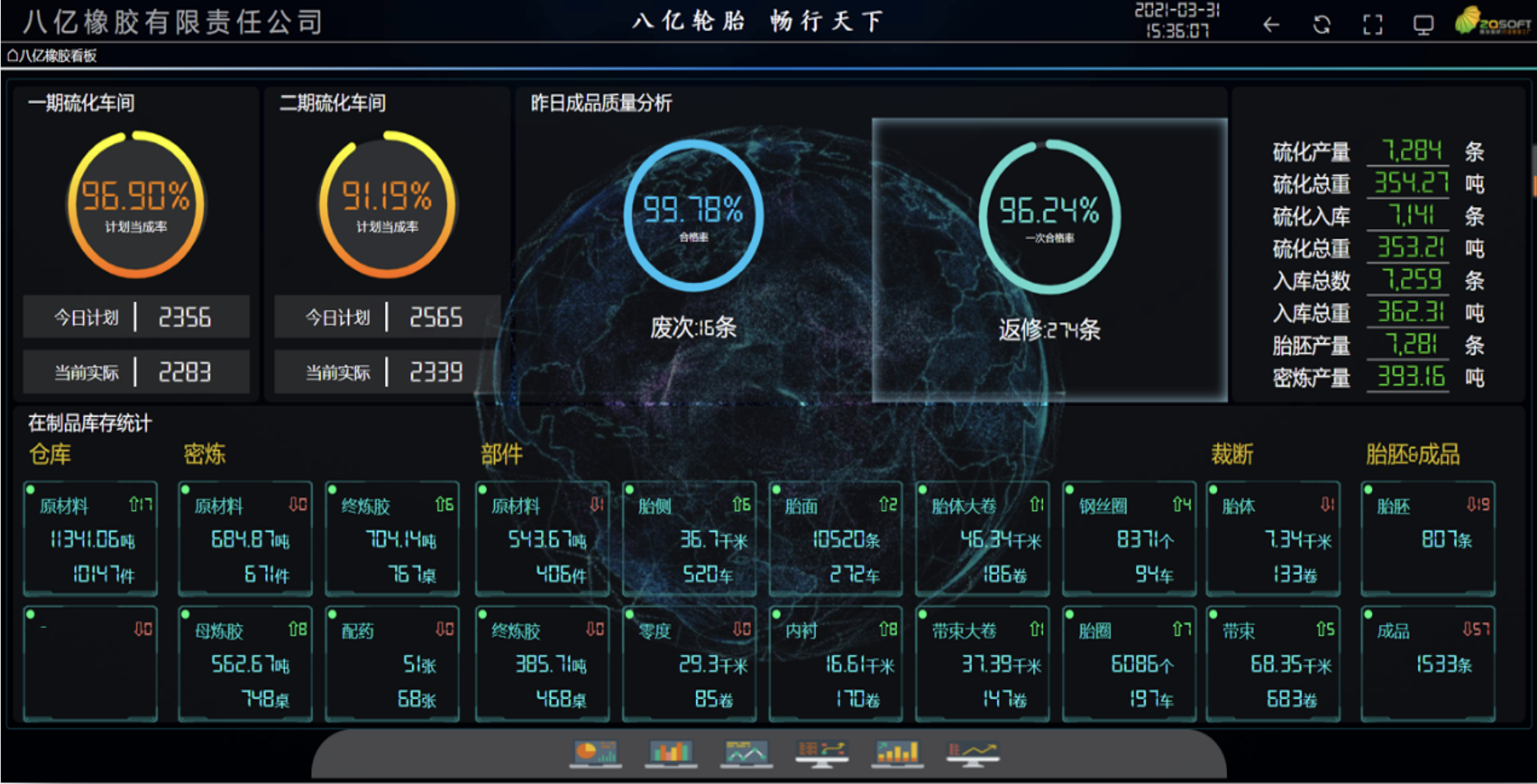
I. Customer background
Bayi Rubber Co., Ltd. is a state-owned enterprise that integrates the design, research and development, manufacturing, and sales of all-steel tires, conveyor belts, and natural rubber products. After years of deep cultivation, the company has formed a perfect industrial layout and management system, encompassing three subsidiaries: Bayi All-steel, Yihe Conveyor Belt, and Thai Rubber, radiating upstream and downstream industrial clusters. Its core competitiveness continues to be prominent, and it has grown into a large modern enterprise in the industry.
The company's annual production of all-steel radial truck tires is nearly 4 million sets. Leveraging shareholder resources and geographical advantages, its products are exported to 42 countries and regions worldwide, successfully providing supporting services to renowned automobile companies such as FAW and Shaanxi Automobile. With a solid industry position, the company has been continuously selected as one of the "Top 50 Rubber Industries in Shandong Province" and "Top 75 Global Tire Companies".
II. Project Background
Currently, the production management in the Bayi Rubber Workshop is primarily manual, and there are evident shortcomings in its informatization construction. Although some workshops have deployed workshop-level management software, it is limited to a single function or specific processes, resulting in prominent phenomena of "automation islands" and "information islands." The application effectiveness has not met expectations, leading to a relatively low level of networking and informatization in the workshops.
The specific pain points are as follows: the massive data generated during the production process cannot be effectively managed, the information in various production links is difficult to maintain accurate and consistent, and it is impossible to quickly respond to dynamic changes in production; at the same time, the workshop has not introduced logistics automation equipment and systems, and on-site material circulation relies entirely on manual operation of transportation tools, limiting efficiency and accuracy.
Based on this, the company urgently needs to introduce an MES management system. Guided by the principle of "overall planning and step-by-step implementation", it aims to build a smart manufacturing management platform covering the entire process of 800 million rubber production in stages, in order to break through the current management bottleneck.
III. Project Content
The core objective of the Bayi Tire MES project is to deploy the MES system in the absence of an existing information technology foundation, integrate the core operations of Bayi Rubber's workshop site and planning and production department, and establish an integrated management platform. This will assist the enterprise in achieving its strategic goals of "digitizing the manufacturing process, visualizing workshop management, and ensuring product data traceability". The specific content includes:
Data collection and traceability management: Implement data collection during the production process; establish full-cycle quality archives for raw materials, semi-finished parts, finished parts, tire blanks, and finished products, and simultaneously complete material flow information management and traceability query functions.
Production plan control: Monitor the on-site production progress in real-time; after plan review or modification, it can be issued to the on-site terminals in real-time to ensure the timeliness of the plan; add system verification when reviewing key plans to ensure the accuracy and completeness of the plan; the completion amount of the plan is updated in real-time through the on-site terminals, facilitating dynamic monitoring of the plan achievement by the system.
Visualization and report analysis: Based on the data accumulated by the system, a visual production monitoring dashboard is built for management personnel (centered around the two core dimensions of material flow and production planning). Joint queries are conducted by combining historical planning data with master data to generate multi-dimensional statistical reports, supporting management decision-making.

IV. Implementation Highlights
1. Full-process precise traceability: With the control of material information flow within the factory as the core, a full-process traceability system based on barcodes is established. This system supports rapid and precise forward and reverse tracking throughout the entire production process, enhancing the efficiency and accuracy of product traceability.
2. Precise cost control: Collaborative ERP systems meet the needs of precise management of production costs, enabling automatic extraction of key cost data and reducing human intervention factors. They avoid the impact of limited initial MES construction scope on core cost accuracy, providing reliable data support for the ERP system to present operational results.
3. Abnormal warning response: Establish a warning function platform that covers scenarios such as logistics circulation, material feeding, and inventory management. Trigger real-time warning reminders to enhance the ability to quickly handle abnormal events and reduce the risk of production interruptions.
4. Strengthening production base management: Improve production BOM management in the internal mixer, component, molding, and vulcanization processes, laying the groundwork for the implementation of error prevention mechanisms in subsequent material feeding.
5. Full-process error prevention: Integrating data such as production plans, process standards, and material information, we implement error prevention and control measures throughout the entire process of feeding raw materials, rubber compounds, semi-finished parts, tire blanks, and finished tires, as well as during process execution, to reduce the rate of production errors.
6. Intelligent inventory management: Implement precise inventory management for rubber compounds, semi-finished products, and tire blanks, monitor inventory dynamics in real time, and automatically analyze inventory change trends; trigger early warning reminders for inventory shortages to ensure production continuity.
7. Efficient reuse of returned materials: Establish a multi-channel unified management mechanism for process semi-finished products (including returned materials), achieve standardized reuse of returned materials, improve material utilization, and reduce production costs.
1883D6D19D79454E9B3FA44C8F7F50F7.png)